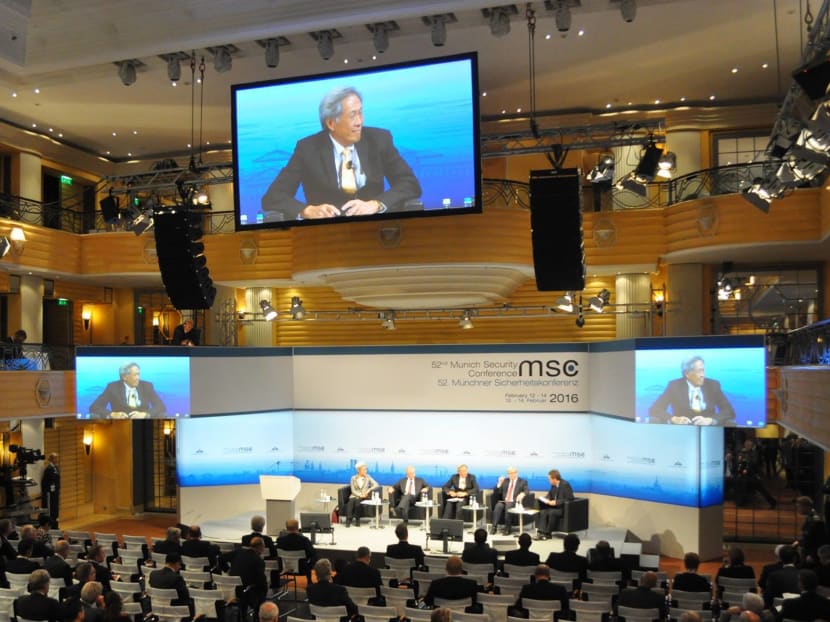China's heft gives it 'critical role' in international order
MUNICH — With its economic and military heft, China’s leadership role in international affairs is a given and it plays a “critical” role in setting norms and new rules in international affairs, said Singapore’s Defence Minister Ng Eng Hen.

The panel discussion on China's role in the world at the 52nd Munich Security Conference. Photo: Ng Eng Hen/Facebook
MUNICH — With its economic and military heft, China’s leadership role in international affairs is a given and it plays a “critical” role in setting norms and new rules in international affairs, said Singapore’s Defence Minister Ng Eng Hen.
Addressing foreign affairs and defence leaders from around the world at the 52nd Munich Security Conference in Germany today (Feb 14), Dr Ng said how or whether China acts on the international domain sets norms and even rules for the global system.
Citing Chinese President Xi Jinping’s remarks about wanting a new “historical start point”, Dr Ng said China must now articulate its vision for its desired global order.
“In other words, what rules does China envisage will govern and protect the global commons? On what basis should the international order facilitate progress for all countries?” said Dr Ng. “I think China needs to do that because its own stability is now dependent on the stability of the overall system.”
In his speech for a panel discussion on China’s role in the world, Dr Ng also noted that China has developed rapidly over the years, with its gross domestic product increasing more than 25-fold since 1978 to over US$8 trillion (S$11.2 trillion) today. Alongside Dr Ng on the panel were United States Senator Robert Corker, former Australian Prime Minister Kevin Rudd and China’s Chairperson of the Foreign Affairs Committee Fu Ying.
China’s linkage to the global order is also inextricable, said Dr Ng, as more than half of its exports today are produced by foreign-invested firms from countries including Japan, South Korea and Singapore.
The minister also said Singapore would support China’s involvement in the proposed Trans-Pacific Partnership (TPP) trade bloc if it is passed by both houses of the US Congress. The pact, which covers 40 per cent of the world economy, was signed earlier this month by 12 member-nations, including Japan, Singapore and the US, after five years of negotiations.
“If the TPP is perceived or positioned as an anti-China trade bloc, I think it would be counterproductive. But if China joins it, and China is not precluded joining it, it would complement other initiatives,” he said.
“And Singapore, being the ASEAN-China coordinator this year, actively pursues that trajectory.”
Other topics discussed during the conference included ongoing and emerging security concerns worldwide, such as in climate and health.






